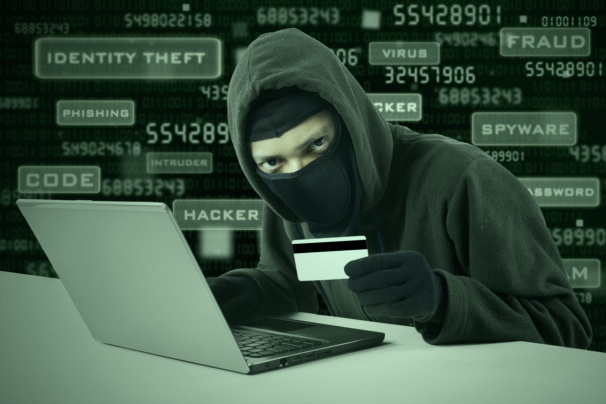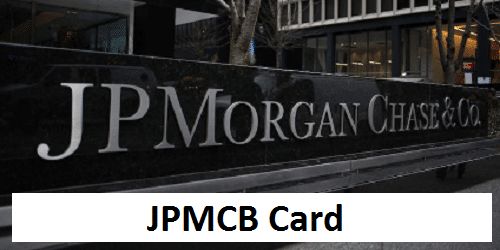How often do credit card frauds get caught? One of the most shocking statistics in the world today is how many credit cards get stolen every year and how much money is lost through credit card theft every year. In 2018, the world recorded $24.26 billion lost to credit card theft, which is an 18% increase from previous years and this number is still climbing.
With so much money getting stolen, it’s not surprising when someone asks ‘how often do credit card frauds get caught?’ Do they even get caught at all? Do credit card companies investigate? What are the banks and police doing about it?
If you find yourself asking these questions, then you’ve found your answers. We were just as curious as you, so we did our research, and here are the answers.
How Often Do Credit Card Frauds Get Caught?
Credit card frauds do not get caught very often. However, with the recent use of EMV-chip cards by banks and credit card companies, it is becoming harder for scammers to commit credit card theft. For those wondering how often credit card frauds get caught this is probably the light at the end of a tunnel.
One of the reasons why credit card frauds are not caught so often is because they use anonymous services and modern techniques which make it a lot harder to locate them. Another reason is that most victims don’t bother to report to the police, especially when it’s not a huge sum of money. They only reach out to their bank and whatever was stolen would be refunded – if the report was made in time.
The bank would also not make a police report if the amount is not high because they will most likely have insurance. It is the insurance company that loses money in these cases and even if they file a police report, it will probably end up abandoned because no police officer wants to waste time on a $500 fraud case when there is bigger fish to fry.
Even when a huge sum gets stolen, the only way the police can catch credit card fraud is if there is relevant CCTV footage, or if they can trace the criminal and these scammers only get smarter by the day, so they are a lot more careful with how not to get caught.
What is Credit Cards Fraud?
There are several types of credit and debit card fraud. Fraudsters may steal credit card numbers, steal the actual card, open new cards in the victim’s name, or commit other types of fraud. Keeping track of the various types of fraud from a legislative point of view is impossible. To compensate, the laws are written broadly to cover all types of credit card fraud.
In other words, most credit or debit card fraud laws state that using a card fraudulently is prohibited. The laws then specify the penalties based on the amounts involved.
Types of credit card fraud
This subheading will cover everything from skimming credit cards to using your expired credit cards with the intent of stealing the amount in the bank.
Forging credit card information (484 PC)
Suppose you alter or change the information of the debit card. In that case, you can be There is also “wobbler,” so it will be prosecuted as a felony or misdemeanor. If you get caught, the penalty is a $1000 fine and one year in the country jail, while the felony carries a sentence of up to three years and a $10000 fine.
Fraudulent Retail Transaction (484h PC)
This emerges when you use a forged, stolen, or expired credit card to complete a transaction for which no goods are exchanged. In this case, it allows vendors to keep the money from the transaction without exchanging anything.
Therefore, it is treated in the same way as fraudulent use: damage less than $950 is treated as petty theft; damage over $950 will be treated as grand theft.
Skimming at ATM
Credit card readers can be illegally installed in ATMs by hackers. In addition, they have a handy device with which they can read the information on your card. They only need to be physically close to you for the reader to capture your credit card information. This is known as credit card theft.
They can easily clone your card once they have your details. They accomplish this by loading your credit card information onto a blank card, commonly known as a dummy blank card, and then illegally using it for malicious transactions or selling this information on the dark web.
The Intensity Of The Offense
Credit card fraud can refer to a variety of activities. Yet the most basic definition is stealing someone’s credit card to access their money and identity. Even if no money is stolen, stealing a physical credit card or card information is illegal.
If the card is used, the penalty for fraud is more severe. Credit card counterfeiting and identity theft are the most serious forms of credit card fraud.
Different states have different laws to classify credit card fraud. Depending on these factors, credit card fraud can include:
The minor act of vandalism: – A minor offense is usually punishable by a minimal fine rather than jail time. A minor offense is generally defined as stealing the card but not using it.
Misdemeanor: A combination of a higher fine and imprisonment can be imposed as a penalty. In most cases, it is a crime for the scammer to use a small amount of the stolen credit card.
Felony: This is the most serious crime and often carries the highest fines and years in prison. This includes increased credit card spending, credit card counterfeiting, and identity theft.
Chance of getting caught for a first offense
In addition to cash transactions, credit card purchases can be easily tracked as they leave a trail online.
However, online scammers use freight forwarders or couriers to hide their addresses to avoid this. Scammers also use the triangulation method to mislead investigators.
Let’s explain the triangulation method. Triangulation is the process by which a scammer opens multiple eBay accounts and sells legitimate items that they don’t own when person “A” buys the item and deposits the money into the scammer’s PayPal account.
In addition, the scammer orders the same item from another seller using the stolen credit card. He sends it to Person A’s address. The scammer gets away with it, while Person A receives an item purchased with a stolen credit card.
How credit card fraud is detected
After noticing unauthorized transactions, your bank or credit card issuer will block the card, send you a new card and launch a fraud investigation where they will try to track down the merchants who charged the card and look for evidence, including time stamps. addresses, location data, etc. that could help them catch the thief. They will then file a report with the police for further investigation.
If you are curious about how often credit card fraud is detected, you may also be wondering how it is detected. The process involves simple research and pattern recognition. Credit card thieves often have a pattern of carelessness that makes them more likely to be caught.
Someone has used my credit card online, can I track it?
Yes, your bank can help you keep track of who has used your credit card online. If you notice any unusual transactions in your bank account, you should immediately report it to your bank and let them know about the situation. This would help them track card usage in any online or brick-and-mortar store. They will then contact those stores and try to get more information about the transactions.
How often does the bank detect credit card fraud? Not so often, but with new technology, there is hope that the rate at which they occur will drop significantly.
Are credit card companies investigating?
Yes, credit card companies investigate reports of fraud. In most cases, they must refund the victim if funds are stolen from the account, but before this happens, they must first investigate the fraud claim and the unauthorized transactions to determine who is going to pay for the fraud. They will also have to investigate the criminal in question to get their money back. You would be amazed at the number of fraud claims they receive each year.
How long does it take to detect a stolen credit card?
It can take several weeks to months to detect a credit card theft. During this time, the credit card issuer or bank will contact the merchant that charged the card for more information about the unauthorized transactions.
Tips to protect against credit card fraud
- Phishing and skimming are common methods that criminals use to steal credit card information, so learn how to protect yourself from such tactics.
- If you suspect or have confirmed that you have been a victim of identity or credit card theft. Freeze your reports immediately as this prevents criminals from opening new accounts in your name.
- Avoid using public Wi-Fi for credit card transactions and make your passwords hard to guess.
- If you have been the victim of fraud or theft, notify your credit card company, the police, and the three major credit card agencies (Experian, TransUnion, and Equifax)
- Record conversations with your issuer and authorities in case the timing of your disclosure is ever compromised.
Conclusion – How Often Do Credit Card Frauds Get Caught
We hope this article has given you an idea and the question “how often do credit card frauds get caught?” has been answered. We also hope that you now know how important it is to be very careful with your credit cards and be alert to quickly spot strange transactions on your card.






